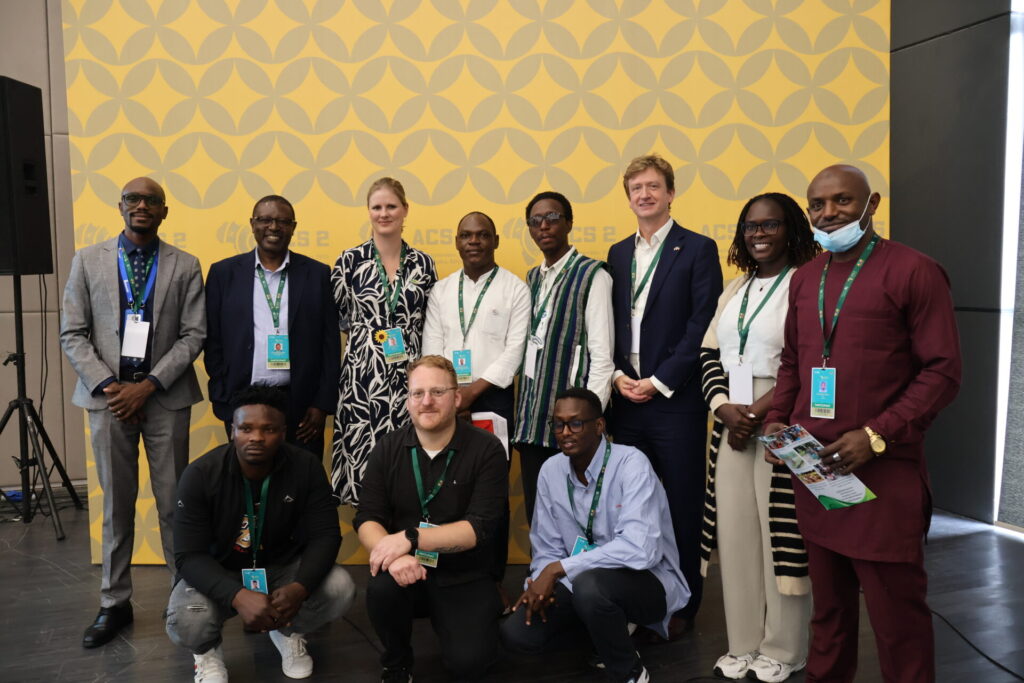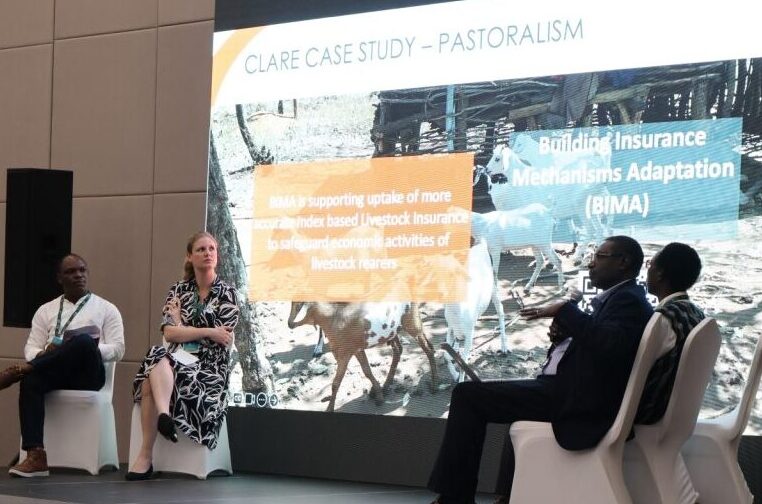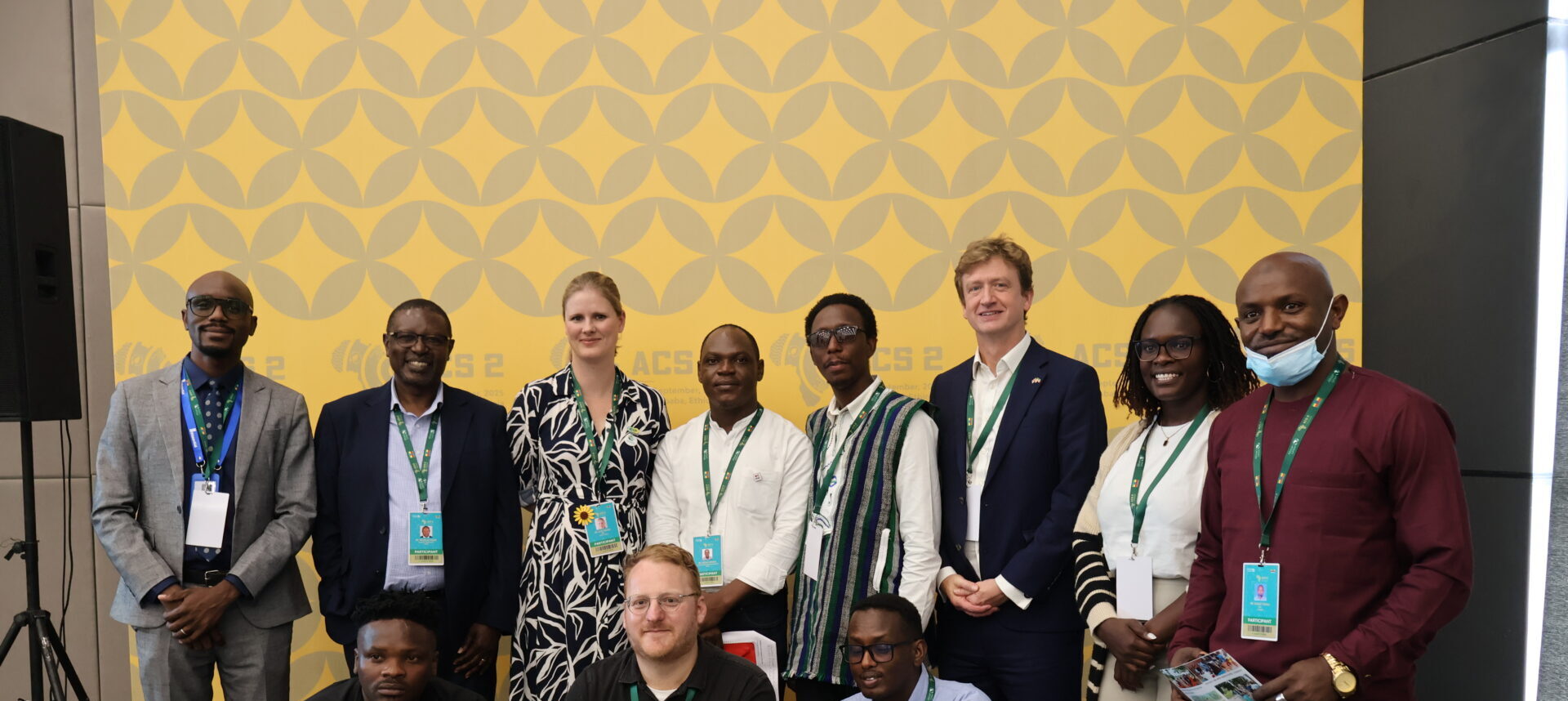Locally Led Adaptation for Growth in Africa: Insights from CLARE at the Second Africa Climate Summit
/
The CLARE research community was actively engaged in the second Africa Climate Summit (ACS2), showcasing evidence of the benefits of African-led climate adaptation from CLARE projects.
From 8 to 10 September 2025, ACS2 was convened by the Government of Ethiopia and the Africa Union in Addis Ababa, Ethiopia. The summit served as a platform for policymakers, practitioners, business and civil society to unify around Africa’s voice and leadership in global climate action.
CLARE’s presence at ACS2 highlighted how it is enabling inclusive and sustainable climate resilience by championing Southern led research and equitable partnerships. Drawing on stories and lessons from CLARE projects working in Africa, CLARE hosted the session “Locally Led Adaptation for Growth in Africa: CLARE Programme Learning”.
The session brought together experts from across the CLARE community to share insights from their projects on how locally led adaptation can support growth in Africa. The session kicked off with an introduction from Dr. Julian Wright, Head of Nature and Climate for Africa for the UK Foreign Commonwealth and Development Office, who emphasized the UK’s proud support for climate adaptation and resilience initiatives across Africa, including the CLARE Programme.

Highlights
Four speakers working across five CLARE projects in Africa spoke to how their projects are championing locally led adaptation in different contexts:
“INNACT ensures that local communities share their local realities so that their experiences can influence or be integrated in climate adaptation policy development.” — Kate Strachan
- Kate Strachan of INACCT Resilience (Mozambique, South Africa) shared examples of how the project is supporting community-driven responses to extreme climate events, which are empowering local interventions to protect the lives and livelihoods of people in vulnerable communities, including informal settlements.
“Improved Livestock Based Insurance products protect farmers against climate threats which can wipe out the entire livestock further pushing families into extreme poverty.” — Ottieono Nicholas Oguge
- Ottieono Nicholas Oguge of the BIMA project (Kenya) outlined the role of Index Based Livestock Insurance (IBLI) in avoiding poverty setbacks for livestock farmers due to climate shocks, detailing how promoting better uptake of IBLI – particularly amongst women – provides economic opportunities to local communities.
“PASSAGE works side to side with local communities to develop strategies and solutions that are context-specific and address multiple challenges that are facing vulnerable local communities.” — Percy Oloche Antenyi
- Percy Oloche Antenyi of PASSAGE (Ethiopia, Kenya, Somalia, South Sudan, Uganda) and REBUMAA (Benin, Nigeria, Togo) spoke to how PASSAGE works to bridge knowledge systems to support better anticipatory action for pastoralists, recognising that the knowledge possessed by pastoralists is not just cultural heritage but an early warning system in itself.
“Urban TRACs is pushing for a collaborative approach that bridges the gap between policy and governance to increase and strengthen collaboration.” — Richard Bockarie
- Richard Bockarie of Urban TRACs (Kenya, Sierra Leone) explained how climate change affects the lives and livelihoods of people living in informal settlements, and how Urban TRACs supports the resilience of these communities by improving climate risk assessments, advancing inclusive governance, and co-creating locally driven solutions.




Collectively, the speakers showed that adaptation and resilience are strongest when projects are locally or community led, inclusive and recognized at every level of governance.
Categories
Countries
CLARE Pillars
CLARE Themes
CLARE Topics
Published
CLARE Projects
CLARE Partners


